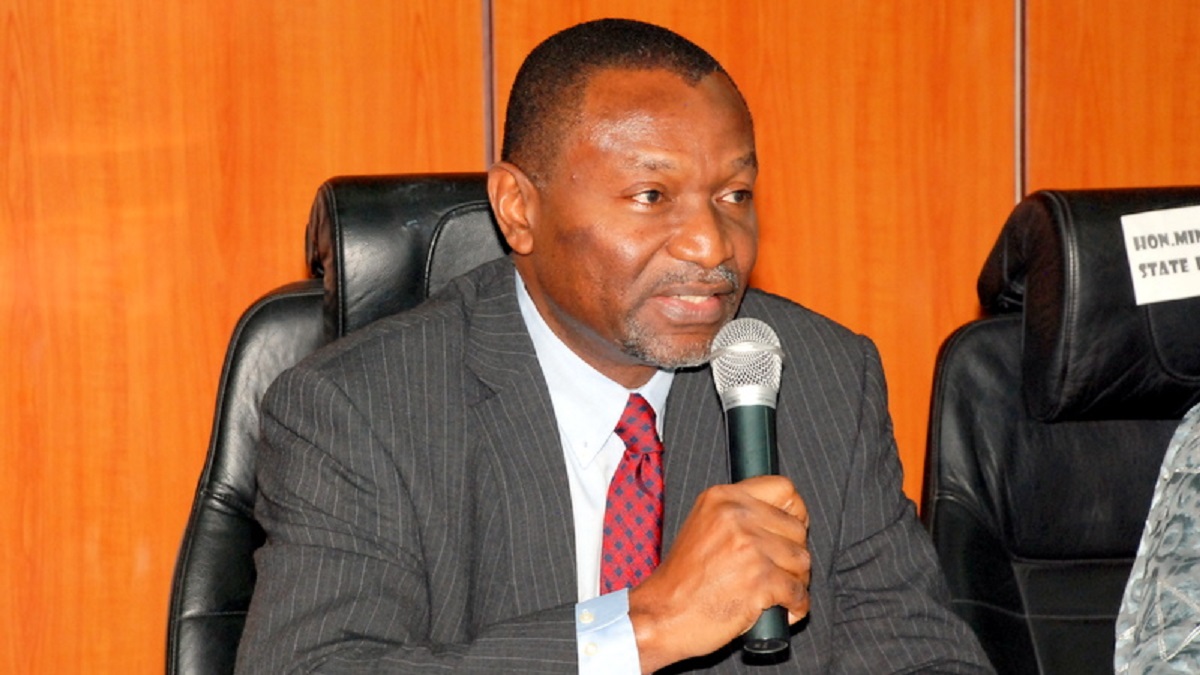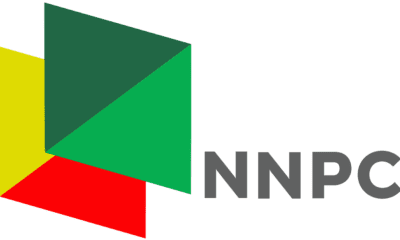Energy
NCDMB, NNPC, IOCs sign MoU to ramp up oil production
…targets 6 months contract cycle
…as active oil rigs hit 31 in 2023 from 10 in 2022
… Regulatory uncertainty drags upstream expenditure by 77.8% in 8yrs – NUPRC
In a bid to ramp up Nigeria’s crude oil production, the Nigerian Content Development and Monitoring Board (NCDMB), Nigerian National Petroleum Company Limited (NNPCL) and five indigenous oil companies (IOCs) have signed a Memorandum of Understanding (MoU).
Recall that Nigeria recorded a decline in the second quarter of 2023 averaging a daily oil production of 1.22 million barrels per day (mbpd), lower than the daily average production of 1.43mbpd recorded in the same quarter of 2022 by 0.22mbpd and lower than the first quarter of 2023 production volume of 1.51 mbpd by 0.29mbpd.
The Memorandum of Understanding (MoU) cum Service Level Agreement (SLA) with the Nigerian National Petroleum Company Ltd (NNPC Ltd) and five international oil-producing companies was conceptualised by the NCDMB to optimize the contracting cycle in the oil and gas industry and spur the speedy development of new oil and gas projects, contributing to increased oil production and improved national economy.
The agreement was signed by the Executive Secretary of NCDMB, Engr. Simbi Kesiye Wabote, while the new Executive Vice President Upstream of the NNPC Ltd, Mr. Oritsemeyiwa A. Eyesan signed on behalf of the national oil company.
Other top industry officials who signed the agreement included the Managing Director of Shell Petroleum Development Company (SPDC) and Country Chair, of Shell Companies in Nigeria (SCiN) Mr. Osagie Okunbor, and the Chairman and Managing Director of ExxonMobil’s affiliates in Nigeria, Mr. Shane Harris. Others included the Director of Joint Ventures for Chevron Nigeria, Mr. Iwueze Cosmas; the Managing Director, Nigerian Agip Oil Company Ltd, Mr. Fabrizio Bloomfied, and the Executive Director, Joint Ventures, Total Exploration and Production Nigeria, Mr. Obi Imemba.
The Executive Secretary stated that the overall goal is to conclude the oil and gas industry’s tendering to contract award processes within six months, affirming his conviction that the target is realistic with all key parties now on board with the execution of the SLA. He expressed delight that NNPC Limited signed up to the MoU, being the senior partner of the joint ventures and concessionaire of the production sharing contracts (PSC) arrangements that govern the operations of the industry.
Wabote recalled that NCDMB first introduced the 15-day Rule to the industry in 2017, when it promised that it would respond within 15 working days to any formal request for approvals in relation to projects execution. He noted that the rule was later formalized with an SLA in May 2017 with Nigeria LNG Ltd pioneering the process and breaking approval records in respect of the NLNG Train7 project.
He added that “the industry found the outcome impressive leading to the Independent Petroleum Producers Group (IPPG) signing the SLA in 2018 and Oil Producers Trade Section (OPTS) thereafter.”
Wabote reaffirmed that NCDMB is a business-enabling regulator, hinting that “this is attested to by our being recognised and awarded as the most efficient amongst the MDAs in 2022 by the Presidential Enabling Business Environment Council (PEBEC).
“We are also rated PLATINUM by the Bureau for Public Service Reforms in recognition of the self-imposed reforms of our processes.”
The NCDMB boss assured the industry that the SLA would not be an exception, adding that the Board would deliver its own part of the deal.
The SLA signed with the Nigeria LNG in 2017 was the first of its kind to be entered between a regulator and another entity in the oil and gas industry. The template was adopted for managing documentation, contracting and expatriate quota applications between the Board and international and local operating companies.
The agreement obligated NLNG to submit to the NCDMB documents like the Quarterly Job Forecast, Nigerian Content Plan, Bidders List, Nigerian Content Evaluation Criteria, Nigerian Content Technical Bid among others, while the Board had to respond on specific timelines. Should the Board fail to respond in accordance with the provisions of the SLA, the company could proceed with its tendering process after informing the Board in writing or email.
…as active oil rigs hit 31 in 2023 from 10 in 2022
Active oil rigs in Nigeria have increased from 10 in 2022 to 31 in August 2023, the Nigerian Upstream Petroleum Regulatory Commission (NUPRC) has revealed.
Speaking on the sidelines of the ongoing World Petroleum Congress, Calgary, Canada, Chief Executive Officer, Nigerian Upstream Petroleum Regulatory Commission, NUPRC, Gbenga Komolafe said, “On average, Nigeria had seventeen (17) active oil rigs in 2019 representing one of the highest counts in the African continent as at then.
“The average rig count declined to eleven in 2020, seven in 2021, 10 in 2022, but recently grew to as high as 31 by August 2023, a positive signal of new investments trickling into the country.
“The relatively high crude oil prices may have also attributed to the increase in activities in the petroleum upstream sector.
“We also see this as a reflection of investors’ acceptance of the PIA and its effective implementation by the regulator.
“The projected outlook over the next few years looks promising, and as the regulator in the oil and gas upstream sector.”
Regulatory uncertainty drags upstream expenditure by 77.8% in 8yrs
The NUPRC also stated that uncertainties with regulation dragged the upstream sector expenditure by 77.8 per cent in 8yrs.
The Commission Chief Executive who was represented by the Executive Commissioner, Kelechi Ofoegbu said capital expenditure into Nigeria’s upstream sector, dropped by 77.8 per cent to $6 billion in 2022, from $27 billion in 2014, due mainly to regulatory uncertainty.
He noted that the development culminated in the stagnation of the nation’s oil and gas industry.
He said the nation’s Petroleum Industry Act, PIA, has paved the way for the sustainable development of the industry, adding that it has also brought about restructuring, transparency and accountability.
Energy
ANOH gas project can provide electricity for five million homes — Seplat Energy


The board chairman of Seplat Energy, Udoma Udoma has announced that the newly inaugurated Seplat Energy ANOH Gas Processing Plant can generate electricity for 5 million Nigerians.
Udoma stated this at the commissioning ceremony of the plant, held in Ohaji, Imo State, by President Bola Tinubu.
Built by the ANOH Gas Processing Plant Company (AGPC), the plant is a joint venture equally owned by Seplat Energy and the Nigerian Gas Infrastructure Company (NGIC), a subsidiary of the Nigerian National Petroleum Corporation (NNPC).
The plant achieved mechanical completion in December 2023, recording no Lost Time Incidents (LTIs) over 12 million man-hours.
With a Phase One processing capacity of 300 million standard cubic feet per day, the ANOH plant is set to deliver dry gas, condensate, and LPG to both domestic and international markets.
Tinubu praised Seplat Energy and its partners for their efforts, stating, “Today is a great day of achievement demonstrating teamwork, commitment, and dedication to duty. I congratulate you for all you have done for the country and for fulfilling this in only 11 months.
“The ANOH gas project strongly aligns with Seplat Energy’s mission of leading Nigeria’s energy transition with accessible, affordable, and reliable energy that drives social and economic prosperity.
“As a testament of our pledge to Nigeria, in partnership with the NNPC Ltd, we have delivered this project that will support the current administration’s drive for industrialization and growth of the economy through low-cost reliable power.
“To put this into context, if all of the gas from this plant went into the power sector, it would produce enough electricity to transform the lives of over 5 million people. Given that Nigeria’s population is growing at a rate of over 5 million per annum, we need one of these plants a year every year just to meet the demand of our new arrivals.
“We appreciate the unwavering support of our partner NNPCL, the cordial relationship with our host communities, Imo state government and the support of all stakeholders that are too many to mention,” Udoma added.
CEO of Seplat Energy, Roger Brown, remarked, “Seplat Energy is pleased with the progressive reforms by President Bola Ahmed Tinubu and his administration. In March 2024, the President signed executive orders to enhance investments in greenfield gas development and midstream capital projects.
“Also, the Nigerian Midstream and Downstream Petroleum Regulatory Authority (NMDPRA) recently improved gas prices under the DSO, to trigger further investments to the domestic gas sector – our ANOH gas plant will benefit from these reforms and incentives. No doubt, the ANOH’s gas will further reduce Nigeria’s carbon intensity and increase energy supplied to the Nigerian domestic market.”
The commissioning ceremony was attended by Seplat Energy’s board members, management and staff, government officials, institutional partners, traditional rulers, and industry players, among others.
Group CEO of NNPC, Mele Kyari, commented on the collaborative efforts, stating, “The ANOH Gas Processing Plant being commissioned by NNPCL and our partner is in line with Nigeria’s decade of gas agenda and particularly consistent with the administration’s efforts to boost gas supply in the domestic market.”
Imo State Governor, Hope Uzodinma, represented by Deputy Governor Chinyere Ekomaru, congratulated Seplat Energy on the timely completion of the project and expressed optimism about the opportunities it brings to the state.
Minister of State Petroleum Resources (Gas), Ekperikpe Ekpo, added, “With a capacity of 600 million standard cubic feet per day, the ANOH Gas Processing Plant is a shining example of advancement. This plant will greatly advance the availability of domestic gas which will boost power generation and hasten industrialisation.”
The ANOH Gas Processing Plant, which is situated in Ohaji, Imo State, is poised to emerge as one of Nigeria’s most important gas initiatives. It would speed up the switch from diesel generators to cleaner, more affordable fuels like natural gas for power generation and enable higher gas production.
Energy
Dangote Refinery seeks 2m barrels of US oil – Report


Nigeria’s newly constructed Dangote refinery, Lagos is seeking to purchase millions of barrels of US crude oil over the next year as it ramps up processing rates, Bloomberg reported on Thursday.
According to the report, the plant has issued a term tender for the purchase of two million barrels a month of West Texas Intermediate Midland crude for 12 months starting in July.
“The plant, built by Africa’s richest man, Aliko Dangote, issued a so-called term tender for the purchase of two million barrels a month of West Texas Intermediate Midland crude for 12 months starting in July, according to a document seen by Bloomberg. The tender closes on May 21,” the report stated.
Recall that the 650,000 barrels per day Dangote Petroleum Refinery is taking advantage of cheaper oil imports from the United States for as much as a third of its feedstock as it starts production.
An earlier report by Bloomberg on April 18 stated that the plant has been shipping products in weeks while readying two units to enable gasoline (petrol) output that will deliver a long-promised transformation of the fuel market both in Nigeria and the region. It attributed this to analysts.
“Dangote is going to influence Atlantic Basin gasoline markets this summer and for the rest of the year,” said Alan Gelder, Vice President of Refining, Chemicals, and Oil Markets at the consultancy firm, Wood Mackenzie.
Energy
530 CNG buses ready for deployment in Lagos, Oyo, Kwara, FCT, others


The process for nationwide deployment of Compressed Natural Gas (CNG) vehicles has commenced. Not less than 530 buses are to be deployed by the end of the month in six pioneering states.
These are Oyo, Lagos, Kwara, Kogi, Kaduna, Nasarawa, and the Federal Capital Territory (FCT) Abuja.
Programme Director of the Presidential Compressed Natural Gas Initiative (PCNGI) Michael Oluwagbemi stated this yesterday.
It was during the event signaling the commencement of 15-day-long activities ahead of the rollout.
He said the distribution is on a demand-led basis. He added that efforts would be accelerated at the conversion of diesel and petrol-fuel engines across the country.
According to Oluwagbemi, President Tinubu has directed the PCNGI to ensure the conversion of at least 10 per cent of the total number of vehicles in the country in the first year of the rollout of the initiative.
Today, the team will inspect the Jets and Mikano Factory along with representatives of the Ministry of Labour and workers unions.
Southsouth and Southeast stakeholders engagement will be held tomorrow in Port Harcourt, the Rivers State capital.
Affiliate conversion and refuelling at the Femadec Site as well as an inspection tour of the Total Energies support station are planned.
Another six-day inspection tour of the Kojo Factory at the Enugu-Onitsha Site will begin on May 24 to receive the first set of assembled tricycles, buses, cylinders and kits ahead of the official launch.
The Luojia Assembly Plant for CNG tricycles on the Lagos-Ibadan Expressway will be inaugurated on May 30.
“These programmes are a fulfilment of President Bola Ahmed Tinubu’s promise to drive Nigeria’s energy transition in the transportation sector leveraging CNG and enabling economic growth,” Oluwagbemi stated.
He noted the President’s political will to ensure the full utilisation of natural gas which hitherto was being flared.
-
Finance4 months ago
Court orders Sen. Victor Umeh to repay N136m bank debt to AMCON
-



 Abuja Update3 months ago
Abuja Update3 months agoUNDP, FG partnership needed to achieve inclusion, equity- Minister
-
capital market2 years ago
Rt.briscoe, FBNH, Others halts negative performance of stock market
-
Abuja Update2 months ago
Banks drive stock market performance with N147bn gain
-



 Health1 month ago
Health1 month agoCapacity training will reduce migration of health workers- NPHCDA
-
Submission Guidelines4 months ago
CALL FOR SUBMISSIONS: POETRY COLUMN-NND
-



 Business4 weeks ago
Business4 weeks agoTingo Group unveils Tingo Electric, Tingo Cola drink at Lagos launch
-
News4 months ago
Oil thieves sponsoring malicious media campaign against Navy – Spokesman
















